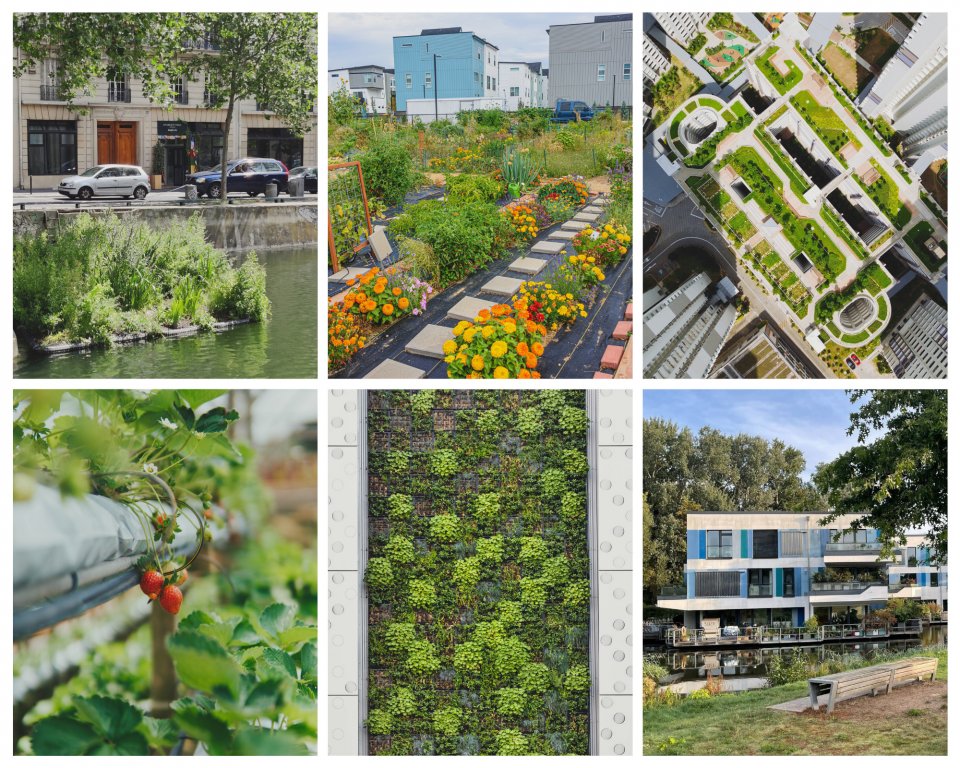
Nature-based solutions first emerged as a term in the late 2000s introduced by the World Bank, and championed by the International Union for Conservation of Nature (IUCN), among others, to embed biodiversity considerations in climate change adaptation and mitigation. The concept has gained popularity among practitioners and policymakers since.
The concept was by no means the first example of nature-based solutions in practice, as many indigenous populations have acknowledged the role of nature in supporting human well-being for a long-time before any terms entered the scientific discourse. Nature-based solutions range from small scale interventions, such as green walls to large-scale such as creation of artificial urban ecosystems. What is common to all nature-based solutions is that they should create benefits both to the environment and people, and they are often co-created together with the end users and other relevant stakeholders.
Nature-based solutions are defined by the United Nations Environment Assembly (UNEA) as: "Actions to protect, conserve, restore, sustainably use and manage natural or modified terrestrial, freshwater, coastal and marine ecosystems, which address social, economic and environmental challenges effectively and adaptively, while simultaneously providing human well-being, ecosystem services and resilience and biodiversity benefits." Nature-based solutions support EU policies such as the European Green Deal, biodiversity strategy and the climate adaptation strategy. The EU is funding nature-based solutions through its Horizon 2020 and Horizon Europe programmes, to bolster research, innovation and spread of nature-based solutions, with projects such as NetworkNature.
For more information see the NetworkNature factsheets and knowledge brief:
This Factsheet provides an overview of some of our current societal challenges in different sectors and practical, on the ground examples of how Nature-based solutions are used to tackle them.
This factsheet explores the potential of ecosystem restoration actions to halt and reverse the degradation of ecosystems. Building on the outcomes of the last NetworkNature semester theme on Nature-based solutions for Ecosystem Restoration, the factsheet provides an analysis of several restoration projects carried out in diverse ecosystems, and addressing multiple challenges.
The brief provides an overview of the nature-based solutions (NbS) knowledge gaps resulting from an analysis by NetworkNature of a large number of research publications, an online consultation and strategic dialogues with key stakeholders. This can support policymakers in better understanding the research needs which can strengthen the implementation of NbS.
This Knowledge Brief explores and analyse different perspectives and perceptions of high-quality nature-based solutions . The brief provides an overview from key stakeholder groups and draws recommendations for practitioners and policy-makers on how to ensure the quality of NbS interventions.
This policy brief takes a fresh look at the implications of the European Commission’s proposed Nature Restoration Law for cities, regions and local actors. The first of its kind, this paper looks at what the Law holds in store for these governments and authorities – actors on the front lines of the global climate and biodiversity crises.

Curious about nature-based solutions? Find more resources below:
- Website: Wikipedia: Nature-based solutions - Wikimedia
- Brief: What are nature-based solutions? Risks, concerns and opportunities - Global Youth Biodiversity Network (GYBN)
- Report: The Global Climate Change Alliance Plus Initiative nature-based solutions reportage: IT’S TIME TO RESET OUR RELATIONSHIP WITH NATURE
- Video: The future we can and must chose: nature-based solutions - Nature-based Solutions Initiative, University of Oxford
- Website: What are nature-based solutions - Nature-based Solutions Initiative, University of Oxford
- COP26 Briefings - Valuing Inclusion and Diversity, Embracing Uncertainty: Ways Forward for Nature-based Solutions – The British Academy, Linjun Xie
- COP26 Briefings - Nature-Based Solutions and the Green Economy – The British Academy, Leslie Mabon
- Handbook: Evaluating the impact of nature-based solutions – The European Commission
- Summary for Policymakers: Evaluating the impact of nature-based solutions – The European Commission
- Infographic: Horizon 2020 funded Nature-based solutions projects – The European Commission
- Report: Nature-based solutions State of the art in EU-funded projects – The European Commission
- NetworkNature Youtube Channel for NbS Videos
- Webpage: Nature-based solutions – The European Commission
- Webpage: Nature-based solutions research policy – The European Commission
Browse more nature-based solutions resources here.
